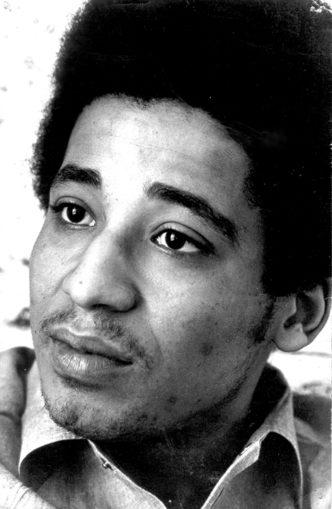George Jackson on the role of prisons, 50 years after his death
This year will mark the 50th anniversary of the assassination of George Jackson, an African American prison leader sentenced to a life sentence as a teenager for “stealing” $40 from a gas station. His 11 years behind the walls were spent in California’s Soledad and San Quentin prisons. Jackson became a revolutionary leader revered by those inside and outside the walls everywhere. Upon hearing of Jackson being killed at the age of 29 by a prison guard on Aug. 21, 1971, in San Quentin, incarcerated workers inside of Attica refused to eat in protest, which was a prelude to their heroic uprising less than three weeks later on Sept. 9. And Aug. 21, 1970, has come to be known as “Bloody Sunday.”
Jackson was made a member of the People’s Revolutionary Army within the Black Panther Party with the rank of general and field marshal. He was put in charge of prison recruitment for the BPP. At Jackson’s funeral, BPP co-founder, Huey P. Newton, gave the eulogy, saying in part, “George Jackson was my hero. He set a standard for prisoners, political prisoners, for people. He inspired prisoners, whom I later encountered, to put his ideas into practice, and so his spirit became a living thing. [H]e will go into immortality, because we believe that the people will win as they advance, generation upon generation.”
In tribute to this martyred leader are slightly edited excerpts from Jackson’s second book, “Blood in My Eye,” completed less than a week before his death and released in 1972.
The men who placed themselves above the rest of society through guile, fortuitous outcome of circumstance and sheer brutality have developed two principal institutions to deal with any and all serious disobedience — the prison and institutionalized racism. There are more prisons of all categories in the United States than in all other countries of the world combined.

George Jackson
At all times there are two-thirds of a million people or more confined to these prisons. Hundreds are destined to be legally executed, thousands more quasi-legally. Other thousands will never again have any freedom of movement barring a revolutionary change in all the institutions that combine to make up the order of things.
Two-thirds of a million people may not seem like a great number compared with the total population of 200 million. However, compared with the 1 million who are responsible for all the affairs of men within the extended state, it constitutes a striking contrast. What I want to explore now are a few of the subtle elements that I have observed to be standing in the path of a much needed united front (nonsectarian) to effectively reverse this legitimatized rip-off.
Prisons were not institutionalized on such a massive scale by the people. Most people realize that crime is simply the result of a grossly disproportionate distribution of wealth and privilege, a reflection of the present state of property relations.
There are no wealthy men on death row, and so few in the general prison population that we can discount them altogether. Imprisonment is an aspect of class struggle from the outset. It is the creation of a closed society which attempts to isolate those individuals who disregard the structures of a hypocritical establishment, as well as those who attempt to challenge it on a mass basis.
Throughout its history, the United States has used its prisons to suppress any organized efforts to challenge its legitimacy — from its attempts to break up the early Working Men’s Benevolent Association to the banning of the Communist Party, during what I regard as the fascist takeover of this country, to the attempts to destroy the Black Panther Party.
The hypocrisy of Amerikan fascism forces it to conceal its attack on political offenders by the legal fiction of conspiracy laws and highly sophisticated frame-ups. The masses must be taught to understand the true function of prisons. Why do they exist in such numbers? What is the real underlying economic motive of crime and the official definition of types of offenders or victims? The people must learn that when one “offends” the totalitarian state, it is patently not an offense against the people of that state, but an assault upon the privilege of the privileged few.

